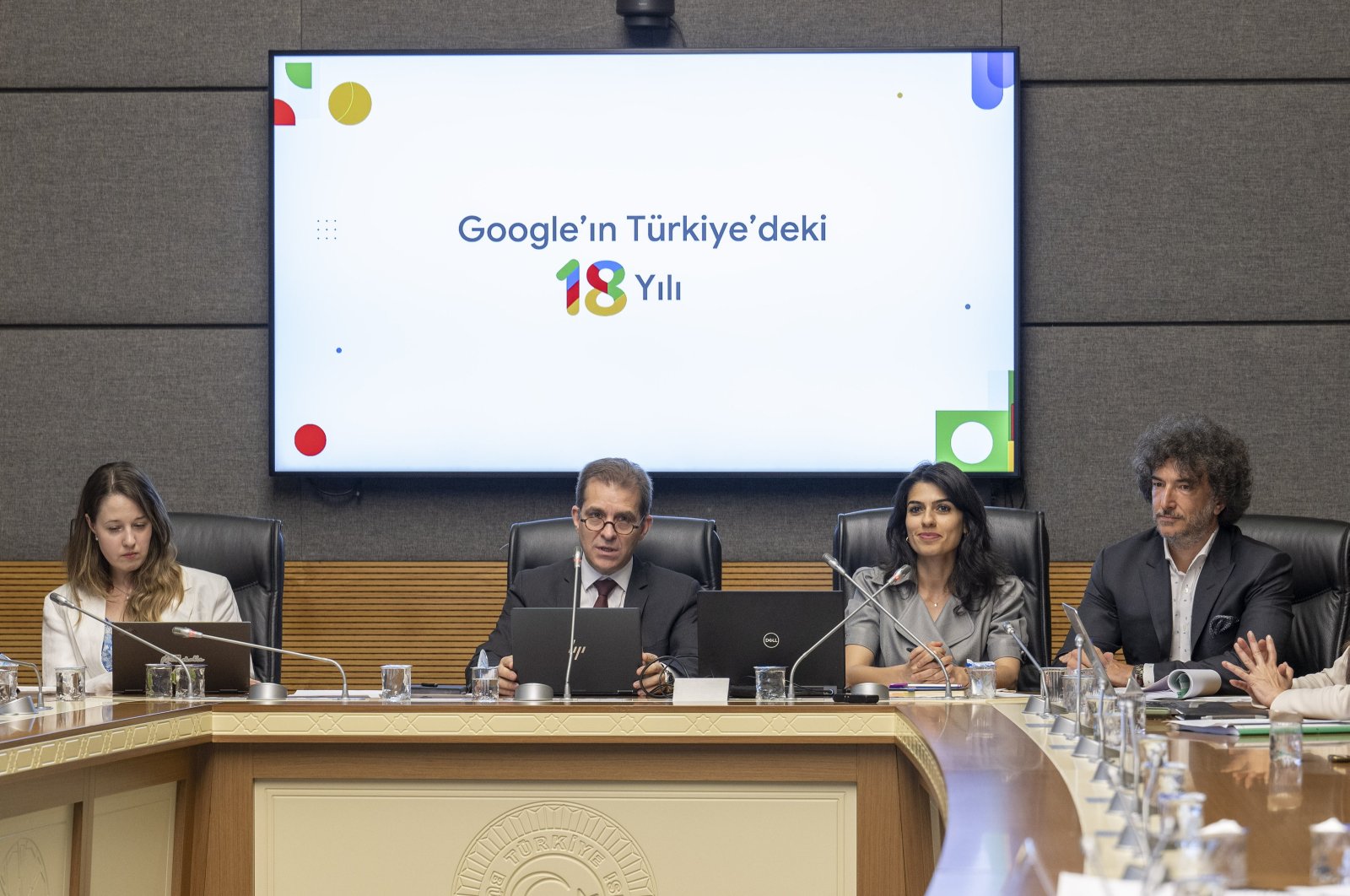
Google said on Tuesday that it was ready to engage and work collaboratively with all stakeholders in Türkiye on the proposed digital copyright law, aimed at safeguarding the rights of content creators and curbing unauthorized use of digital material.
The statement came during a session at Parliament where the Digital Media Commission members welcomed Google representatives to discuss the legislation, marking the first such engagement.
Hüseyin Yayman, head of the Digital Media Commission, stressed the importance of the legislative effort and emphasized that protecting the copyright of news and other digital content is crucial for maintaining fair competition and securing the earnings of content creators in the digital age.
"Today is a historic day for Türkiye. We are hosting Google representatives in our commission to address the issue of digital copyright, which the media sector has been advocating for rigorously,” Yayman stated.
He drew parallels with European standards, suggesting that Türkiye should adopt similar frameworks to ensure that news and other valuable content are protected under copyright laws.
News publishers, among Google’s fiercest critics, have long urged governments to ensure online platforms pay fair remuneration for their content.
The organizations have been losing ad revenue to online aggregators such as Google and Facebook and have complained for years about the tech companies using stories in search results or other features without payment.
Yayman stressed the necessity of avoiding double standards in applying these protections, asserting: "As in European norms, news here must also be subject to copyright. The unauthorized use of content, be it news or any other valuable material, not only undermines the creators’ rights but also affects the revenue of institutional structures relying on advertising.”
Representatives from Google expressed openness to discussions and cooperation and said the company would comply with any regulations regarding digital copyrights.
Google Director of Government Affairs and Public Policy Duygu Yücesoy reiterated the company’s willingness to sit down with all stakeholders to find a viable path forward.
"We are prepared to come to the table with all our stakeholders and engage in meaningful discussions,” she said.
She emphasized that understanding the needs and expectations of the local journalism ecosystem is crucial and that the issue of digital copyright cannot be addressed with a one-size-fits-all solution.
"This is not a matter that can be resolved with a single solution or stance," Yücesoy added. "Each country’s journalism ecosystem has unique needs. Therefore, we are ready to engage with all our stakeholders to discuss solutions that will benefit both sides by best understanding the needs and expectations here."
Acknowledging the diverse positions that Google might have, Yücesoy emphasized, "That’s why we are committed to understanding the needs and expectations in our country and engaging in consultations to develop solutions that will be beneficial for both sides."
Echoing Yücesoy's view, Tolga Sobacı, Google’s head of government relations for advertising and marketing, stressed the company’s respect for Turkish legislative processes.
"We respect and will adhere to any regulations enacted by the Turkish Parliament,” Sobacı said.
"We recognize the authority of the Turkish Parliament to make binding legal regulations as necessary, and we show a maximum effort to comply with laws and binding rules in all countries we operate in, including Türkiye. We wish to continue our discussions with news content producers and publishers to understand their needs and offer comprehensive solutions.”
